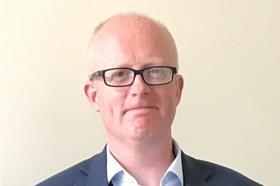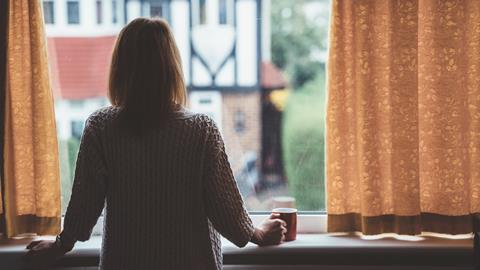Covid exhaustion. This was a phrase used by my coach when describing how many of his clients have presented over the last few weeks.

No obvious symptoms but convinced that they retained some underlying ailment, undeniably linked to Covid-19.
Aches and pains, exhaustion, viral-like symptoms, lack of sleep, apathy, the list went on and on.
The only real common denominator being that they all retained high pressured jobs, where competition, status, ego, targets all played a key role in their profession.
Is this ringing any bells?
The legal profession already retains undeniable levels of pressure, with a myriad of differing drivers. Throw both Covid-19 and isolation into the mix and you have the perfect storm for lawyers (or anyone for that matter) who are susceptible to stress, anxiety, depression or any other mental illness.
Why now?
But suddenly, as if by magic, mental health is no longer a taboo topic. We find ourselves drowning in an abundance of tips around mindfulness, yoga, coping strategies and offers of mental wellbeing resources at every turn.
Whilst I appreciate that firms are making such tools and resources available, I find myself asking the question: why now?
It is not as if our profession is a stress-free environment. According the Junior Lawyers 2019 survey, over 90% of junior lawyers reported negative stress as a result of work. The truth of the matter is that we as lawyers predominantly exist in a culture where mental wellbeing remains a topic that, whilst slightly more acceptable as facet of our professional health, is still perceived to be a character weakness.
The message being: If you struggle with mental health issues, you will struggle in the legal profession.
The answer as to why lawyers are all suddenly more accepting of the importance of mental health is possibly twofold.
Firstly, we are struggling with an unprecedented challenge. The Covid-19 crisis lockdown has been compared to wartime restrictions, but many pensioners will tell you that it is actually worse, in that at least in wartime they could go about their business relatively unhindered.
Secondly, we find ourselves isolated from the competitive environment of suits and offices. We sit at home and the pressure of 'image' is no longer a facet of our daily existence.
We are metaphorically in the ‘same boat’ as everyone else and if everyone else is talking about mental health, then why can’t we?
There is constant talk about this being a turning point for society and that we will be living in a new reality when the pandemic subsides.
If this is the case, then with mental health being at the forefront of our discussions, is this not a time for the legal profession to take a hard look in the mirror and accept the fact that mental health is of paramount importance for our people? Not just in terms of their wellbeing but in terms of their productivity.
If you create a culture where mental health is discussed as an acceptable societal norm, then you remove the stigma attached to the conversation.
We have all experienced moments of uncertainty during the pandemic, from doubts of self-worth to fears for our own physical health and that of our loved ones.
Mental health is ‘health’, and this has been the clear message from the greater society during the Covid-19 crisis.
Mental wellbeing is front and centre as a topic of conversation daily, intrinsically linked to the balance between physical health and the benefits that that brings.
So, my question to our profession is this:
'If mental health is an acceptable conversation now, then shouldn’t it be one of the discussions that we should be having now, in preparation for our return to the office?'
By 'conversation' I don’t mean a management tick box exercise. It must be a conversation with full buy-in from top to bottom, as only then will we see the change that our profession’s people deserve.
So, thank you Covid-19 for giving us the opportunity to talk about our mental health.
It often takes a crisis to wake us lawyers up.
Nicholas O’Neill, Open University Business School student mentor, chair of the Wirral Borough Council’s Men’s Health Group and a LawCare champion
































2 Readers' comments